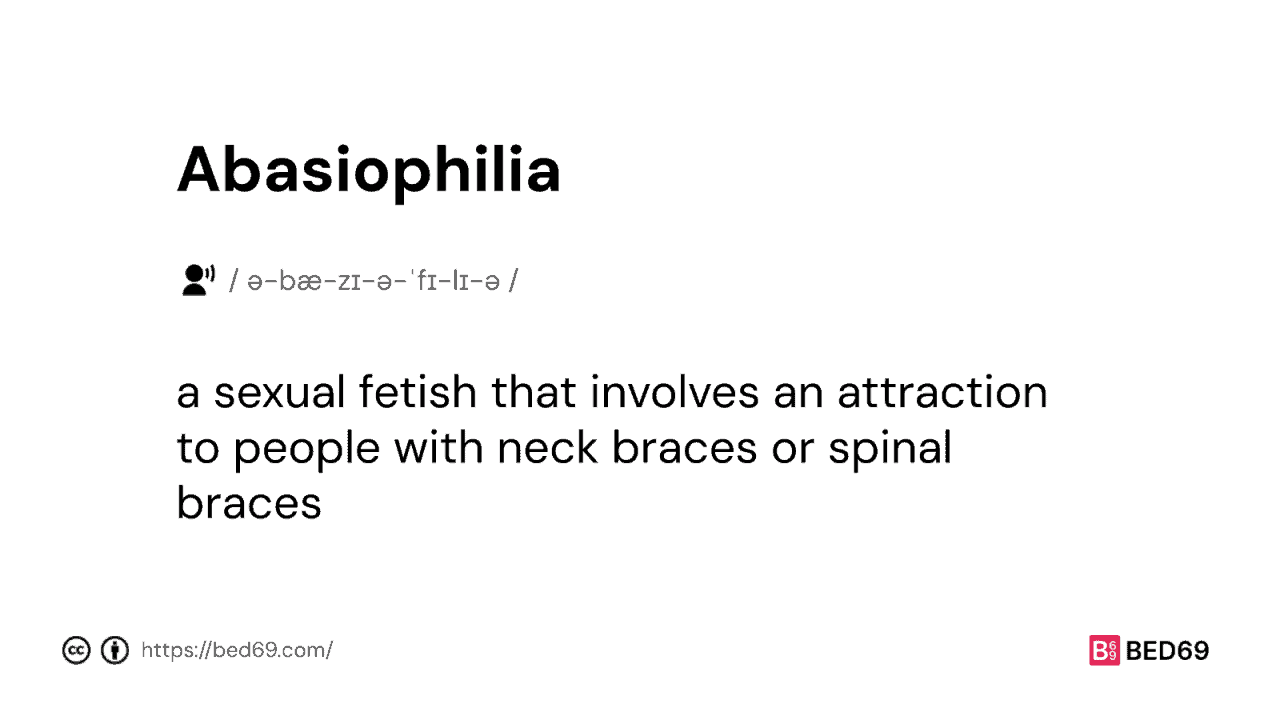What is Abasiophilia?
Abasiophilia is a type of paraphelia, which is a sexual attraction to non-human objects or body parts that are not typically considered sexually arousing. In the case of abasiophilia, the fetish is centered around neck braces or spinal braces, which are medical devices designed to immobilize or support the neck and spine. People with abasiophilia may find the sight of someone wearing a neck brace sexually arousing, or they may be sexually stimulated by the idea of having control over someone who is wearing a neck brace.
Abasiophilia pronunciation: / ə-bæ-zɪ-ə-ˈfɪ-lɪ-ə /

What Causes Abasiophilia
Abasiophilia may stem from various factors, including psychological and emotional needs. For some individuals, the attraction to neck braces or spinal braces could be linked to feelings of control or power dynamics.
It might also be associated with a desire to care for others in a vulnerable state or a need for dominance in a relationship. The fetish could be a manifestation of complex emotions and experiences that are channeled through objects associated with physical limitations.
Additionally, societal influences and personal experiences may play a role in shaping abasiophilia. Exposure to certain images, media, or experiences during one’s formative years could contribute to the development of this fetish. Moreover, individual differences in perception and interpretation of stimuli may also influence the development of abasiophilia.
Overall, understanding the causes of abasiophilia involves considering a combination of psychological, emotional, and environmental factors that contribute to the formation of this unique sexual preference.
Effects on Individuals
Individuals with abasiophilia may experience a range of emotions, from guilt and shame to excitement and arousal. This fetish can lead to internal conflicts and challenges in forming intimate relationships.
The fixation on neck braces or spinal braces can dominate their thoughts and desires, potentially impacting their daily life and interactions with others.
Moreover, those with abasiophilia may struggle with societal acceptance and face stigmatization due to the unconventional nature of their sexual preference. This can result in feelings of isolation and alienation from mainstream society.
Seeking support and understanding from others who share similar interests may offer a sense of belonging and validation, albeit within a niche community.
Navigating abasiophilia can be complex, requiring individuals to balance their desires with societal norms and personal well-being. It’s essential for individuals to prioritize self-awareness, open communication, and self-acceptance while seeking avenues for healthy expression of their sexuality.
Explore other interesting terms:
